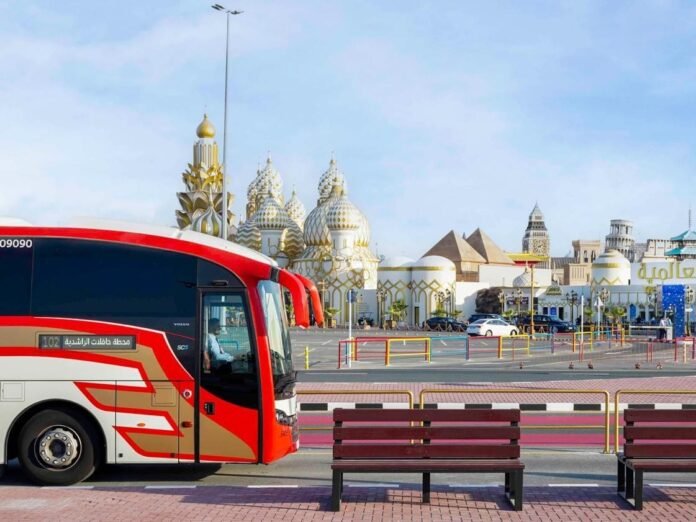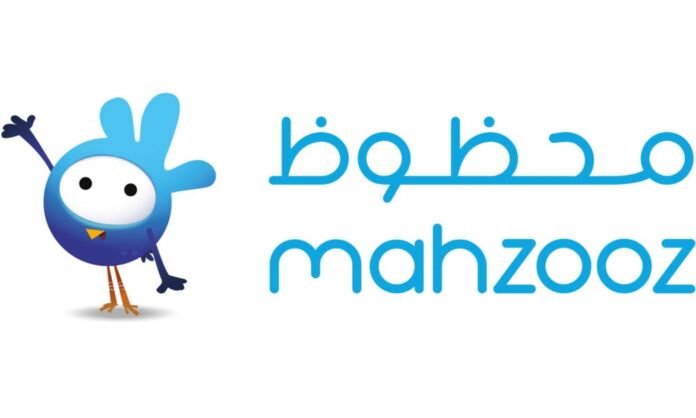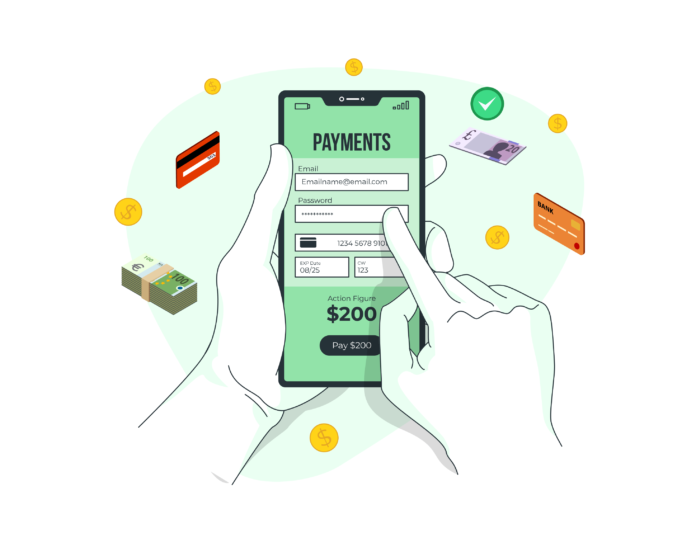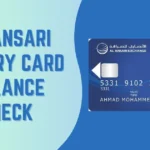Public transport operates silently yet it influences all aspects of our daily existence. The 309-bus route begins as an unimportant bus route, but it transforms into an essential transportation service for thousands of people who need to travel for work or school or home. The transportation service connects different areas of the city while making commutes shorter and more affordable which creates the basic schedule that people follow throughout their daily activities.
Commuters who travel every day or people who use public transport for the first time or those who research local transportation systems will find this complete guide which includes all essential information about 309 bus route operations starting from bus stops and bus schedules until the end of travel advantages and operational details.
Let’s start our exploration.
What Is the 309 Bus Route?
The 309-bus route provides urban and suburban public transportation service which links residential areas with commercial centers and educational locations and medical facilities and public transit hubs.
The route 309 system operates different stops in each city while it maintains core functions which include showing passengers their path through the system and helping them transition between systems. The 309 routes most commonly operate through the following essential path
The main connections between residential neighborhoods link key residential areas of the city together with important residential areas of the city.
The system provides direct connections to metro stations and railway terminals while it offers access to educational institutions and healthcare facilities and shopping centers.
The system offers cost-effective daily travel solutions to users who require dependable transport services.
The transport system uses route numbers such as 309 to create a logical mapping system which helps passengers identify their travel routes through urban areas.
Why the 309 Bus Route Matters
Imagine a student who lives outside the city limits in a residential neighborhood. The student needs to travel every day to school. The student must use ride-hailing services which cost more than driving a car. The student needs to reach the metro station which is located at a distance that exceeds their walking limit. The 309-bus system provides vital transportation support which enables residents to reach their destinations.
The number of people who need to use public transport exceeds numerous thousands.
Public buses remain one of the most cost-effective and environmentally friendly modes of transport. According to urban transportation research findings, cities with extensive bus networks can decrease personal vehicle usage by 30% which results in major reductions of traffic congestion and greenhouse gas emissions.
The 309-bus route helps achieve its objectives through:
The system helps create a better travel experience for all users through its development work.
The bus represents a public transportation system that serves as operational infrastructure which provides essential transport services to users.
309 Bus Route: Major Stops and Coverage
The 309-bus service maintains its main operational path which connects important transportation hubs throughout various city locations. The following example demonstrates the typical structure that defines the routing system for 309 bus services.
Key Stop Categories
- Residential Areas
Most 309 routes begin or pass through densely populated residential neighborhoods. The stops link to essential services which need to serve three groups:
The stops connect to essential services which need to serve three groups.
- Educational Institutions
The 309-bus service operates through multiple routes which connect various educational facilities throughout the system.
- Public schools
- Private schools
- Colleges
- Universities
The school schedules create high passenger numbers for both morning and afternoon travel periods.
- Commercial & Business Districts
The public transport system will make stops at these locations:
- Office complexes
- Shopping malls
- Retail markets
- Government offices
The busiest time period occurs between 7 AM to 9 AM and 4 PM to 7 PM.
- Transport Interchanges
The 309-bus route operates two essential transportation functions because it connects passengers with:
- Metro stations
- Railway stations
- Main bus terminals
- Park-and-ride facilities
This service enables passengers to travel across different transport modes without interruption.
309 Bus Timings and Frequency
Commuters first want to know about:
“How often does the 309-bus run?”
The city transport authorities will show slight variations in bus timings but here is the common schedule:
Weekday Schedule
First Bus: Around 5:00–6:00 AM
Last Bus: Around 10:00–11:30 PM
Buses operate every 15 to 30 minutes during peak hours.
During Off-Peak hours the bus schedule operates every 30 to 45 minutes.
Weekend & Public Holiday Schedule
- Buses operate at a slightly lower frequency.
- First bus may start later
- Buses will arrive less frequently because of longer waiting times.
- Modern cities now provide:
- Real-time bus tracking apps
- Digital bus stop displays
- SMS updates for arrival times
Pro Tip: Always check your city’s official transport app for live updates before leaving home.
Fare Structure and Payment Options
The 309-bus route provides passengers its biggest benefit through its cost-effective service.
Typical Fare Range
The fare system charges based on how far someone travels.
Short distance: Low base fare
Medium distance: Standard zone fare
Long distance: Higher capped fare
Cities operate using zone-based pricing systems.
Payment Methods
Public transport systems have reached a new level of intelligence because of modern technology. The 309-bus route often supports:
- Smart travel cards
- Contactless debit/credit cards
- Mobile transport apps
- QR code tickets
- Cash payments (in some regions)
Monthly passes or prepaid travel cards can reduce commuting costs significantly — sometimes by up to 20–30%.
Who Uses the 309 Bus Route?
We will now examine who usually travels on this bus route.
Daily Office Commuters
They require dependability and precise timekeeping. Many choose bus travel over driving to avoid parking hassles.
- Students
- Students prefer public buses because of their low-cost ticket prices.
- Senior Citizens
- Discounted travel schemes often apply.
- Low-Income Workers
People who need to travel between places can use public buses which operate from their home base.
According to transport research, public buses remain the most inclusive form of urban mobility — serving all economic segments.
Onboard Experience: What to Expect
The 309-bus route will show you what your ride should be like.
Seating & Comfort
- Standard seating capacity
- Priority seating for elderly and disabled passengers
- Many urban regions operate air-conditioned bus services.
Accessibility Features
- The modern 309 bus system includes these features:
- Low-floor entry
- Wheelchair ramps
- Audio stop announcements
LED display boards
- Safety Measures
- CCTV cameras
- Trained drivers
- Panic buttons (in some cities)
- Regular inspections
Most urban transport networks treat public safety as their primary concern.
Environmental Impact of the 309 Bus Route
Public buses produce lower emissions per passenger than private cars do.
Studies show:
A single bus can replace up to 40 private cars.
High-traffic corridors in urban areas receive about 25 percent fewer CO₂ emissions thanks to public transportation systems.
The 309-bus fleet of several cities is moving toward using:
- Electric buses
- Hybrid engines
- Low-emission diesel technology
Sustainable commuting has become an essential requirement instead of being an optional choice.
Pros and Cons of the 309 Bus Route
Pros
The cost of daily bus rides remains economical for all passengers. The bus system provides service to all locations within its coverage area. The bus system operates in an environmentally sustainable manner. The transportation system works together with both metro and rail systems. People from all economic backgrounds can use the system. The transportation system helps to decrease the number of vehicles on the road.
Cons
Buses reach their maximum capacity during peak travel times. Buses experience potential service interruptions when they face traffic obstructions. Late-night service operates at limited intervals throughout the week. Buses experience standing room conditions during the time when travelers most need them.
People who commute regularly will find more advantages from the system than its drawbacks.
Travel Tips for First-Time Riders
The following tips should be followed by first-time 309 bus route users:
Download the official transport app for real-time tracking. Users should have a rechargeable travel card. Customers should arrive at their bus stop between 5 and 10 minutes before their scheduled time. The bus stop should not be used during peak travel times. Passengers should maintain their small coins for situations that require cash payments.
A little preparation goes a long way.
- How the 309 Bus Route Supports Urban Growth
- Urban planners design bus routes like 309 to meet their needs for:
- The need to access developing areas
- The need to support new housing developments
- The need to connect business districts with employment zones
- The need to reduce the need for personal vehicles
Certain locations show that better bus access leads to higher property values. Real estate experts frequently mention “proximity to bus routes” as a key selling point.
The Future of the 309 Bus Route
Public transportation systems undergo fast-paced changes.
In the coming years we will see:
- The 309 route will provide operations through completely electric buses.
- Artificial intelligence will create optimal bus routes for the 309 route.
- The system will use smart ticketing to handle all ticketing processes.
- The system will construct specific bus routes that will provide buses with their own dedicated road space.
- The system will track actual passenger levels through its bus station monitoring system.
- Cities that create better public bus systems see their economy grow and traffic problems reduce.
- The 309 bus route will undergo changes similar to other routes to accommodate rising commuter numbers.
Special note
The 309 bus route exists in the world as a common public transit line that connects vital locations but its real value lies in how it touches people’s lives through its daily use. Residents of various neighborhoods depend on Route 309 which functions as a reliable transportation link between their homes and essential areas including schools and shopping centers and public transportation stations. The system operates in a silent fashion to maintain the necessary functions for daily activities. The bus serves as their morning transportation choice because it provides them with a reliable schedule that matches their workplace needs. Commuters use this bus service every day at the same time. The 309 route functions as an important feeder service which connects different parts of the public transport system through its strategic design. The system provides affordable fares and low-floor entry and priority seating and frequent service to make it accessible for all users regardless of their age or income level. The 309 bus route provides essential travel support through its dependable service which enables thousands of people to reach their destinations each day.
Practical Takeaway
The 309-bus route represents something bigger than a transit line. The system operates as a connector between distinct neighborhoods and different life opportunities. The system provides:
- The service offers economical commuting options.
- People can reach the service through all entry points.
- The service guarantees dependable transportation throughout its operation.
- The service provides sustainable transportation options.
The urban transportation system relies on public buses to maintain its operation despite their lack of attractive features.
Conclusion
The 309-bus route operates as a public transport system which assists thousands of people who use it to travel between work and school and their daily activities. The system provides consistent service through its affordable fare structure which enables all users to access transportation at all times. Route 309 creates links between different communities while supporting local economic development through its capacity to handle traffic flow and offer an effective public transport option which reduces the need for private vehicle usage. The system provides students with cost-effective transportation options. The system offers employees a reliable transportation schedule. The system provides families and seniors with the ability to travel freely without experiencing financial difficulties.
Bus routes like 309 serve as major elements which help create intelligent urban spaces in cities that experience rapid growth while becoming environmentally sustainable. The system has minor drawbacks which include peak-hour crowding and traffic delays but its overall advantages exceed its limitations. The 309 bus route serves as the essential transit system for urban areas because it provides residents with vital transportation services which are open to all residents. The Route 309 service demonstrates its importance to passengers who ride it for both their daily commute and their first-time experience of the service.














